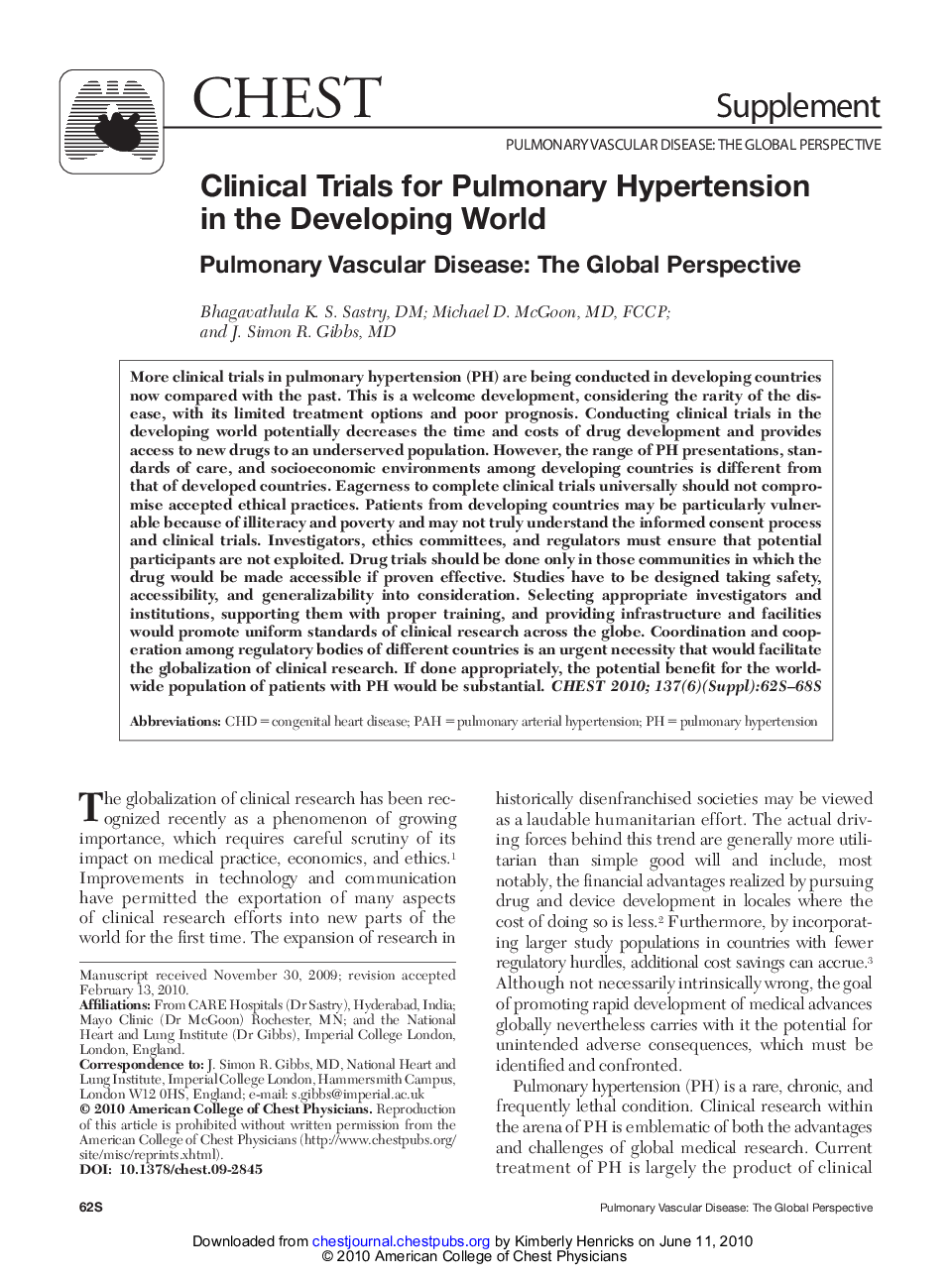| Article ID | Journal | Published Year | Pages | File Type |
|---|---|---|---|---|
| 2902778 | Chest | 2010 | 7 Pages |
Abstract
More clinical trials in pulmonary hypertension (PH) are being conducted in developing countries now compared with the past. This is a welcome development, considering the rarity of the disease, with its limited treatment options and poor prognosis. Conducting clinical trials in the developing world potentially decreases the time and costs of drug development and provides access to new drugs to an underserved population. However, the range of PH presentations, standards of care, and socioeconomic environments among developing countries is different from that of developed countries. Eagerness to complete clinical trials universally should not compromise accepted ethical practices. Patients from developing countries may be particularly vulnerable because of illiteracy and poverty and may not truly understand the informed consent process and clinical trials. Investigators, ethics committees, and regulators must ensure that potential participants are not exploited. Drug trials should be done only in those communities in which the drug would be made accessible if proven effective. Studies have to be designed taking safety, accessibility, and generalizability into consideration. Selecting appropriate investigators and institutions, supporting them with proper training, and providing infrastructure and facilities would promote uniform standards of clinical research across the globe. Coordination and cooperation among regulatory bodies of different countries is an urgent necessity that would facilitate the globalization of clinical research. If done appropriately, the potential benefit for the worldwide population of patients with PH would be substantial.
Related Topics
Health Sciences
Medicine and Dentistry
Cardiology and Cardiovascular Medicine
Authors
Sastry DM, McGoon MD, FCCP, Gibbs MD,
